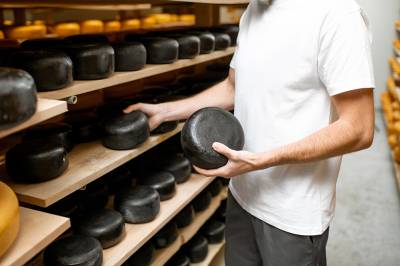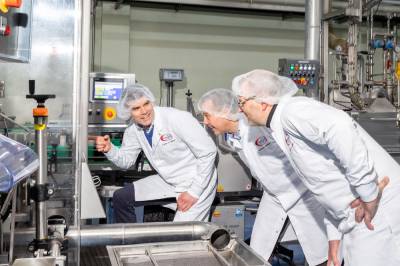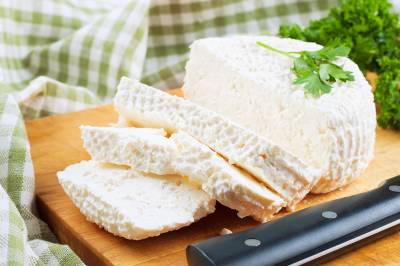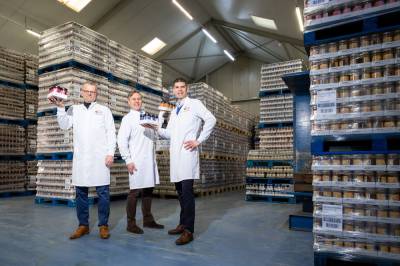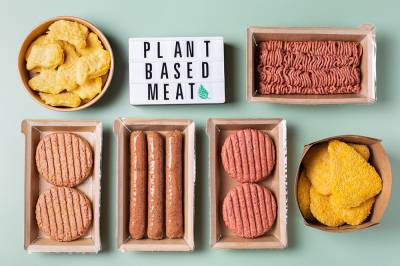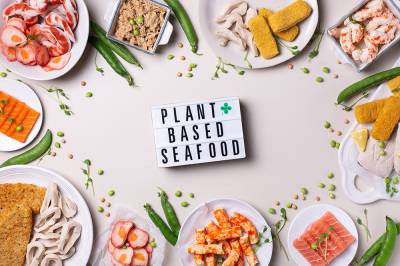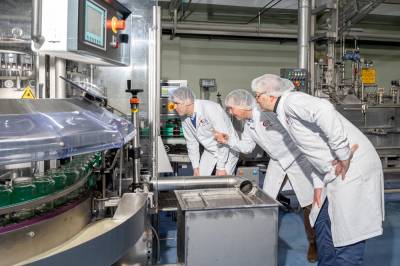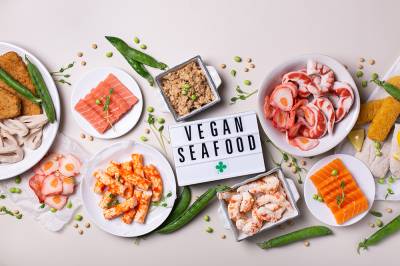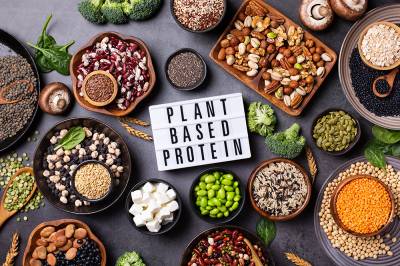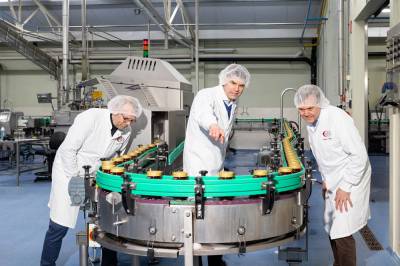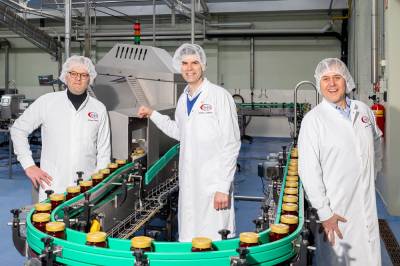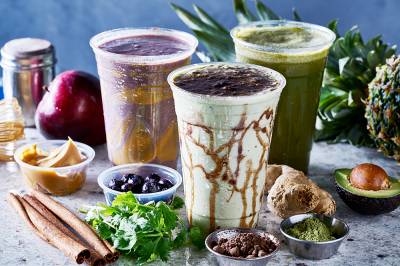
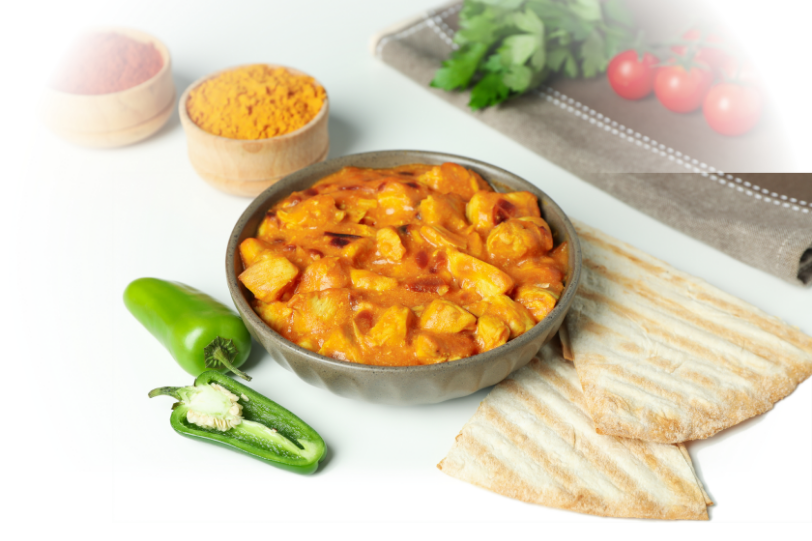




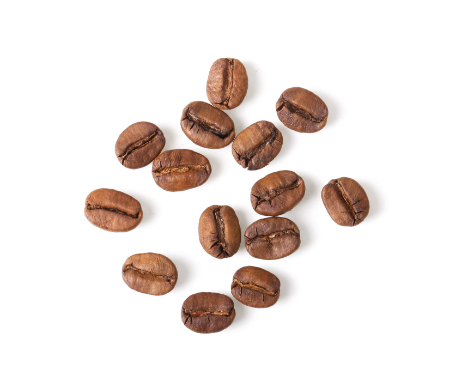
EU Regulatory Compliance and Quality Control: A Guide for UK Food Brands

Expanding a UK food brand into the European Union (EU) presents exciting opportunities, but it also brings regulatory, labelling, and quality control challenges.
The EU's food safety standards are among the strictest in the world, and brands need to ensure that their products comply with these regulations to succeed in the market.
In this blog, we’ll explore the main challenges that UK food brands face in navigating regulatory compliance, labelling requirements, and maintaining product quality across borders—and how Cibus Nexum’s FoodFlow Method can offer effective solutions to overcome these obstacles.
The Challenges of Expanding into the EU
1. Regulatory Compliance: Meeting EU Food Safety Standards
The EU has a stringent regulatory framework governing food safety. UK food brands must adhere to laws such as the General Food Law (Regulation (EC) No 178/2002), which sets out the general principles of food safety, hygiene, and traceability across the food supply chain.
Compliance with frameworks like Hazard Analysis Critical Control Points (HACCP) is also essential to prevent and manage potential food safety hazards. Failure to comply with these regulations can result in fines, delays, or rejection from the EU market.
You can learn more about the EU’s General Food Law on the European Food Safety Authority website.
If your food product is considered a novel food, it will need to undergo a thorough safety assessment by the European Food Safety Authority (EFSA). Novel foods in the EU are those that were not widely consumed in the EU before May 15, 1997. These foods include new sources of nutrients, ingredients derived from plants or insects, or innovative production processes (such as nanotechnology).
For a UK food brand planning to introduce a novel food into the EU market, the company must submit a detailed application, including scientific evidence proving the food's safety for consumption.
Approval from the EFSA is necessary before placing the product on the EU market. Compliance with the EU's Novel Food Regulation (Regulation (EU) 2015/2283) is crucial to avoid legal and financial penalties.
For more information, you can visit EFSA's Novel Foods page.
2. Labelling and Language Requirements
Labelling food products in the EU is a complex task, governed by EU Regulation 1169/2011, which outlines specific requirements for nutritional information, allergens, expiration dates, and other essential details, such as QUID (Quantitative Ingredient Declaration).
Labels must be provided in the official language(s) of each EU country where the product is sold.
These regulations are quite complex, and it is sometimes difficult to identify the correct interpretation. Failure to comply with labelling regulations can lead to fines, product recalls, or market access issues. Non-compliance with EU regulations has been proven to be a disastrous element in being successful when entering the EU food market.
3. Quality Control: Ensuring Consistent Product Quality Across Borders
Outsourcing production to different manufacturers within the EU can pose risks to product consistency.
Variability in quality can damage your brand’s reputation and lead to customer dissatisfaction. Without stringent quality control systems in place, it’s impossible to maintain consistent standards across different production facilities.
How to Meet EU Food Safety Standards
Food Safety Standards are notoriously stringent in the European Union, which can be daunting for a food brand looking to expand to the EU.
Cibus Nexum can help you ensure compliance with these complex EU food safety standards through our network of EU-based manufacturers.
By outsourcing production to these trusted partners, your brand can meet all regulatory requirements from the outset, avoiding the pitfalls of non-compliance. Our FoodFlow Method guarantees that every step of the production process—whether ingredient sourcing or final packaging—meets EU safety regulations.
Compliance with EU regulations as well as quality assurance is one of the key topics throughout every step of the FoodFlow Method.
This allows your brand to seamlessly operate within the EU’s regulatory framework and effectively derisk every regulatory and quality-related issue.
Getting the Details Right on Food Packaging in the EU
As a food brand entering the EU market, labelling can be overwhelming.
Cibus Nexum can guide you through the labelling and certification process, ensuring your products comply with local language requirements and securing necessary certifications where applicable. By partnering with us, UK food brands can easily adapt their packaging to meet the specific labelling and marketing regulations of each EU member state.
Our expertise and network also ensure that your products are certified correctly (e.g. organic, gluten-free, vegan), giving you a competitive edge.
For more information on EU food labeling regulations, visit EU Regulation 1169/2011.
Cibus Nexum also anticipates regulations that will be implemented in the coming years, such as the PPWR (Packaging and Packaging Waste Regulation), which will probably be effective in 2026.
It is in our DNA to make sure we have expertise at hand, to ensure you will be compliant with these regulations as well.
Ensure Consistent Quality When Outsourcing Food Manufacturing
Cibus Nexum’s FoodFlow Method ensures that all manufacturing partners adhere to strict quality control standards.
Our process includes regular audits, quality checks, and real-time monitoring to ensure that products meet the same high standards, no matter where they are produced.
This not only safeguards your brand’s reputation but also guarantees that every product reaching the EU market meets customer expectations.
Case Study: A Seamless Expansion into the EU by a UK Plant-based Dairy brand
One of our clients, a UK-based plant-based dairy brand, was struggling to navigate the complex landscape of EU food safety regulations and labelling requirements.
They faced delays due to regulatory hurdles and were uncertain about how to ensure consistent product quality across multiple EU markets. By partnering with Cibus Nexum, they were able to outsource production to EU-based manufacturers who were familiar with local regulations and quality standards.
We ensured their product labels were compliant with both French and German requirements, and we implemented robust quality control measures to maintain product consistency.
As a result, the company successfully expanded into the EU market, increasing its brand presence without compromising on quality.
Conclusion
Expanding your UK food brand into the EU comes with many complex challenges, but these can be navigated with the right partner and by engaging with the expert approach that Cibus Nexum offers.
Cibus Nexum’s FoodFlow Method simplifies the process, ensuring regulatory compliance, proper labelling, and consistent product quality. By partnering with Cibus Nexum, you can focus on growing your business while we handle the complexities of the EU’s food industry regulations.
Ready to expand your brand into the EU with confidence? Contact us today to schedule an introductory call and learn how our FoodFlow Method can help you navigate regulatory compliance and ensure seamless market entry.
Sign up for the latest tips and that you can put into practice right away.

Call me back request


